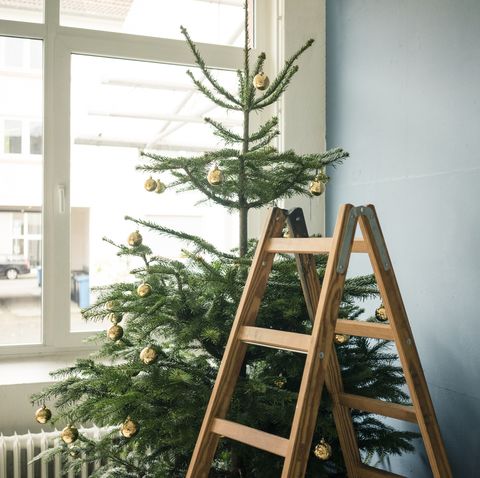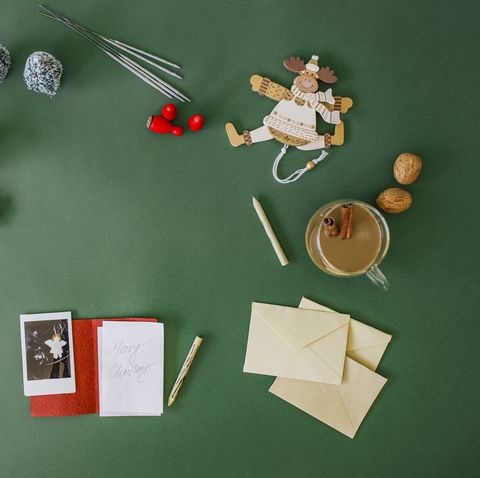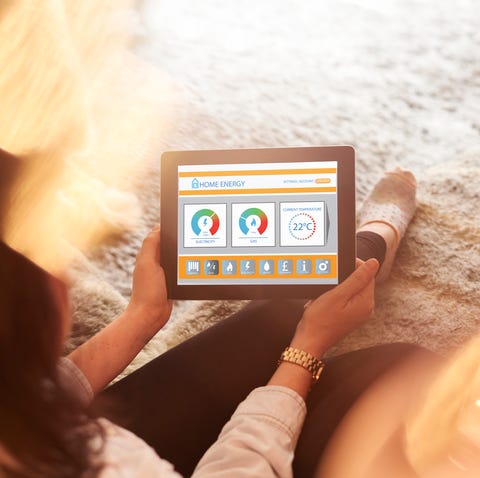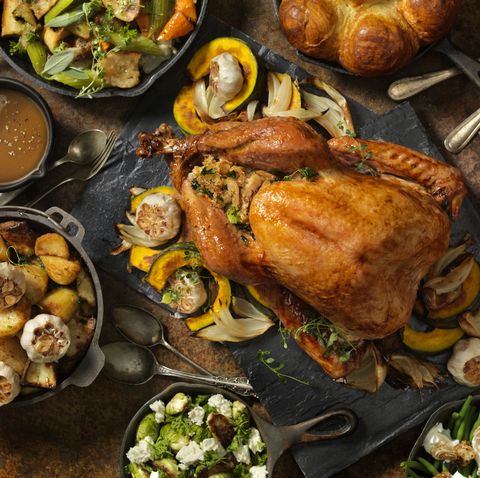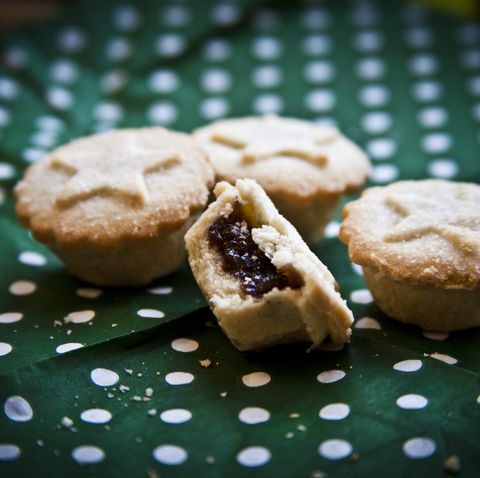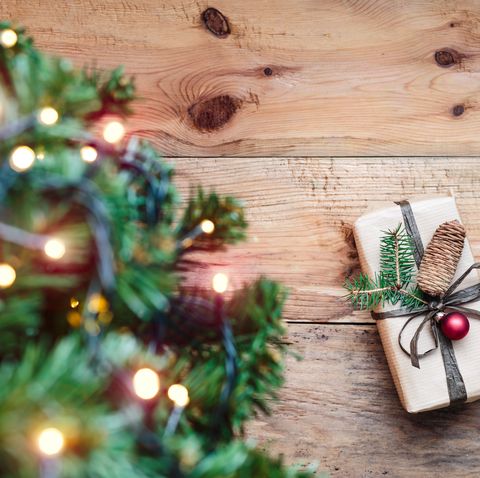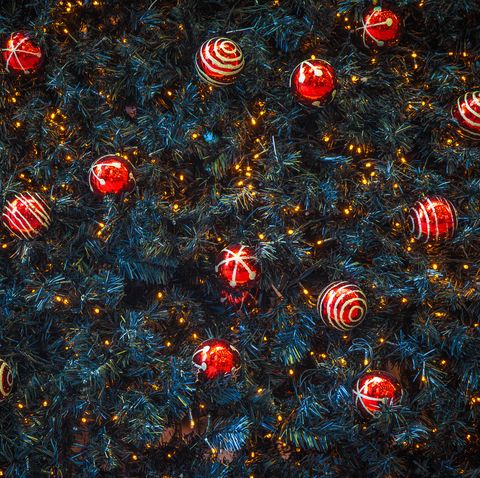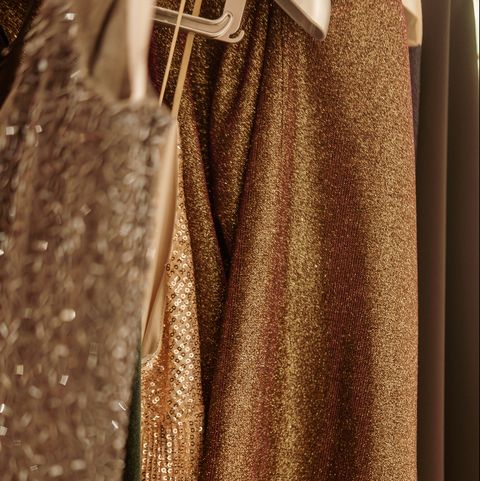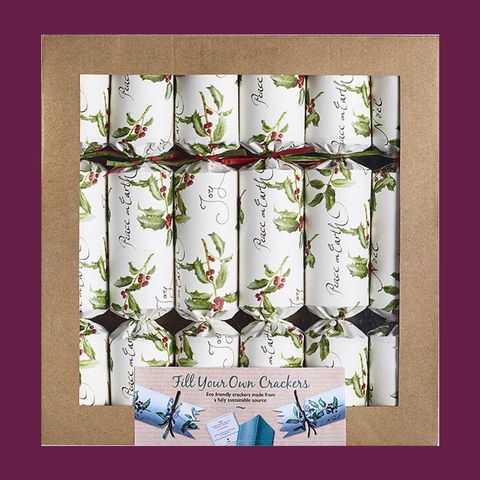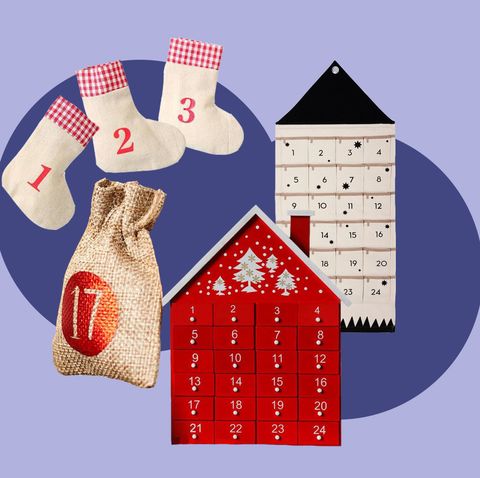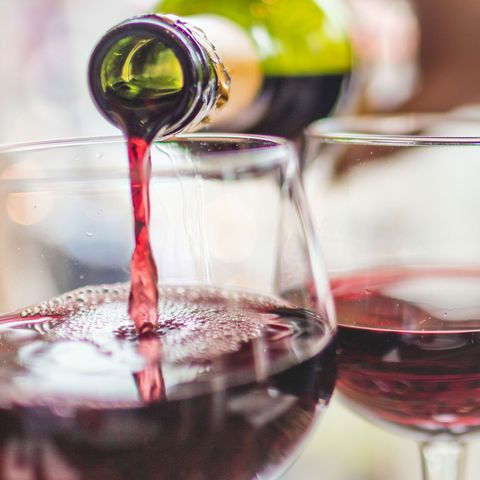Our Guide to a Sustainable Christmas
By Matthew Bouloux
Real Christmas trees are much more sustainable than artificial alternatives. In fact, one study concluded you'd have to use your fake fir for 20 years for it to be greener. That said, seven million real trees will be dumped in January rather than recycled.
This year you could go one further by renting a real tree from a British farm. Love a Christmas tree offers real Nordmann Firs delivered to your door from their Leicestershire family farm from £20. You decorate and care for the tree during the festive period, then they'll pick it up and replant in January. Win, win.
If you buy a tree, ensure it’s been grown as locally as possible: you can go to bctga.co.uk or growninbritain.org to find out about growers in your area. Also look out for the ‘Grown in Britain’ label or Forest Stewardship Council (FSC) ‘seal of approval’, both of which guarantee your tree has been grown to set environmental standards.
After Christmas, go to recyclenow to find out about drop-off points in your area, where your old tree will be recycled into chippings for local parks and woodland areas. Alternatively, take it to your local dump where you can add it to the other green waste or chop it up and stack the wood in your garden to create a habitat for birds and bugs.
More than half of us re-use last year's wrapping paper, according to rubbish clearance specuali Any Junk. What many of us don't realise though is that many rolls contain non-recyclable elements like foil, glitter or plastic.
If you want to know if your wrapping paper can be recycled or not, use the scrunch test. Scrunch up the paper in your hards and then let it go. If the paper stays scrunched up then it can be recycled but, if it unfolds by its own accord, then it likely contains non-recyclable elements.
Opt instead for recycled wrapping paper (website Re-wrapped has plenty of festive designs to choose from), brown paper or tissue.
Store gift bags rather than recycling right away. They can usually be reused more than once with a new tag.
Try knot wraps – colourful fabric squares that can be re-used again and again.
A quarter of us no longer write Christmas cards, but there is a way to send seasons greetings without costing the planet.
Look for cards with the Forest Stewardship Council (FSC) mark. This guarantees the paper has been produced sustainably and ethically. The Woodland Trust shop is a great place to pick up a pack, the proceeds from which also support Britain's woodlands.
Plantable cards are growing in popularity, too. Wildflower Papers has a brilliant range of seed packet cards that the recipient can sow in the spring. Not On The High Street's illustrated cards embedded with carrot seeds are as charming as they are eco-friendly.
Recycle or compost your cards in January or turn them into decorations for next year.
If every household in the UK got a smart meter right now, 11% of the government's net-zero carbon emissions target by 2050 would be satisfied in one fell swoop. And with Christmas being a hotspot for energy use, it's a good time change our ways. The #MissingPiece campaign – brainchild of Smart Energy GB, the University of Salford and the Energy Saving Trust and fronted by Chris Packham – wants to promote smart meters as the missing piece in the climate fight jigsaw puzzle. Not only do they help us save money on our energy bills (up to £200 a year, if used properly), they are an easy way individuals can make a genuine difference to climate change.
Use the annual gastronomic extravaganza as an opportunity to show your support for some brilliant ethical small-scale producers. Turkey and any other cuts of meat you plan to serve are a good place to start: you’ll use fewer food miles, less packaging and you can feel confident that you haven’t supported any intensive farming practices. Swillington Organic Farm, Coombe Farm Organic, Cross Lanes Organic Farm and Springfield Poultry are all good options. Farmdrop, Abel & Cole and Riverford are great places to source other festive ingredients. Farmdrop has a list of producers to browse, while Abel & Cole and Riverford have a tool that provides recipe suggestions for using up leftovers.
Tip: Eat the food in your freezer in the run-up to the main event, leaving plenty of room for leftovers. Surplus turkey and ham can be sliced, then wrapped in parchment and frozen. You can even freeze leftover Stilton and save it to use in a warming winter soup.
Most of us are pretty good at getting creative with our leftovers throughout the year, but when Christmas comes we can be a little more wasteful.
One option is to buy less. That can be tricky though when guests are staying. Food waste apps, such as Olio, are a smarter option. They connect you to people in need in your local area. You simply list what's available, snap a photo and share your location with other app users. Use your composter and green waste bin for scraps, too.
You can find out more about Olio in our round-up of the best eco-friendly apps.
Good intentions can fall short if we don't know what we're adding to our shopping baskets.
Third party certification is the best way to determine if a product is environmentally-friendly, according to Anthesis. Look out for respected eco logos, such as Fairtrade, Rainforest Alliance, Scientific Certification Systems (SCS), Forest Stewardship Council (FSC), Energy Star and Palm Oil Free.
Have a look at The Plastic Free Shop, The Ethical Superstore or Wearth London for inspiration.
If every UK household swapped a string of incandescent lights for its LED equivalent, we could save more than £11 million and 29,000 tonnes of CO2, just over the 12 days of Christmas.
LEDs are much more environmentally-friendly than traditional twinkling incandescent lights, because they use up to 80% less energy.
Switch to solar-powered lights outdoors, and put both sets on a timer. You'll not only make environmental savings but your energy bills will be reduced too.
The best Christmas decorations are family heirlooms that emerge year after year – making them instantly sustainable. However, if you’d like to add to your collection, look to companies such as Nkuku for designs made from brass, glass and wood. Creative types can make their own wreath using paper and twine. Biscuits threaded on ribbon are another option, as are foraged red berries, holly and mistletoe. If you want candles, choose eco-friendly soy or beeswax varieties rather than paraffin – we like The Botanical Candle Co.
Resist the temptation to splash out on sequins (they’re made from PVC and there are no biodegradable substitutes) and opt for sustainable materials instead. For statement, eco-friendly designs, try We Are Thought, The Reformation or Maya Miko. You will probably want to wear them after Christmas, too!
Or try one of these clothes-swapping apps.
Invest in a reusable advent calendar and fill it with a variety of gifts such as handmade truffles. You can even treat your dog to a calendar too.
Your eco-conscience shouldn’t get in the way of a festive tipple – thankfully, there’s plenty of organic wine to choose from, with the UK market share set to double by 2022. We like Forty Hall Vineyard in London and Davenport Vineyards in Kent and Sussex. If you’re after something a little stronger, try Dà Mhìle’s organic whiskey, brandy and gin made at the UK’s first organic distillery in south-west Wales. They also make great gifts. Visit Vintage Roots for hundreds of organic options.
Tip: Not enough party glasses? Don’t buy plastic ones: rent some for free from Waitrose. Visit your local store for details about its loan service.

